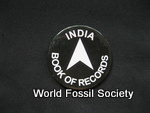@WFS,World Fossil Society,Riffin T Sajeev,Russel T Sajeev A new analysis suggests that much of the carbon released from volcanic arcs, chains of volcanoes that arise along the tectonic plates of a subduction zone, comes from remobilizing limestone reservoirs in the Earth’s crust. Previous research suggested carbon was sourced from the mantle as a result of […]
Posts Tagged ‘WFS’
WFS News: A new species of Tritylodontid found in Japan
 August 13th, 2017
August 13th, 2017  Riffin
Riffin @WFS,World Fossil Society,Riffin T Sajeev,Russel T Sajeev Teeth can reveal a lot, such as how the earliest mammals lived with their neighbors. Researchers have uncovered dozens of fossilized teeth in Kuwajima, Japan and identified this as a new species of tritylodontid, an animal family that links the evolution of mammals from reptiles. This finding suggests […]
The birth and death of a tectonic plate
 August 11th, 2017
August 11th, 2017  Riffin
Riffin @WFS,World Fossil Society,Riffin T Sajeev,Russel T Sajeev Several hundred miles off the Pacific Northwest coast, a small tectonic plate called the Juan de Fuca is slowly sliding under the North American continent. This subduction has created a collision zone with the potential to generate huge earthquakes and accompanying tsunamis, which happen when faulted rock abruptly […]
WFS News: Well-preserved 110 MYO dinosaur found in Canada
 August 6th, 2017
August 6th, 2017  Riffin
Riffin @ WFS,World Fossil Society ,Riffin T Sajeev,Russel T Sajeev AN EXTRAORDINARILY well-preserved 110-million-year-old dinosaur found in a mine pit in Canada now has a name and evidence of a troubled past, researchers said Thursday. With fossilized skin and scales, the dragon-like creature is actually a new kind of nodosaur, coined Borealopelta markmitchelli, after the museum […]
WFS News: Montsechia vidalii ,First Flower on Earth?
 August 3rd, 2017
August 3rd, 2017  Riffin
Riffin @ WFS,World Fossil Society,Riffin T Sajeev,Russel T Sajeev Three was the magic number for the very first flowering plant. The largest study into their early evolution has concluded that its flowers probably had petal-like tepals and pollen-bearing stamens arranged in layered whorls of three. It bore similarities with magnolias, buttercups and laurels – but was […]
WFS News: Whether sills caused mass extinction?
 August 1st, 2017
August 1st, 2017  Riffin
Riffin @WFS,World Fossil Society,Riffin T Sajeev,Russel T Sajeev A study by a researcher in the Syracuse University College of Arts and Sciences offers new clues to what may have triggered the world’s most catastrophic extinction, nearly 252 million years ago. James Muirhead, a research associate in the Department of Earth Sciences, is the co-author of an […]
WFS News: Birgeria americana,Large-mouthed fish was top predator after mass extinction
 July 27th, 2017
July 27th, 2017  Riffin
Riffin @WFS,World Fossil Society,Riffin T Sajeev,Russel T Sajeev The most catastrophic mass extinction on Earth took place about 252 million years ago — at the boundary between the Permian and Triassic geological periods. Up to 90 percent of the marine species of that time were annihilated. Worldwide biodiversity then recovered in several phases throughout a period […]
WFS News: Ponomarenkia belmonthensis,300 MYO beetle
 July 25th, 2017
July 25th, 2017  Riffin
Riffin @WFS,World Fossil Society,Riffin T Sajeev,Russel T Sajeev He’s Australian, around half a centimetre long, fairly nondescript, 300 million years old, and he’s currently causing astonishment among both entomologists and palaeontologists. The discovery of a beetle from the late Permian period, when even the dinosaurs had not yet appeared on the scene, is throwing a completely […]
WFS News: Boy trips, falls and discovers million-year-old Ice Age fossil
 July 20th, 2017
July 20th, 2017  Riffin
Riffin @ WFS,World Fossil Society,Riffin T Sajeev,Russel T Sajeev,Fossil Researchers have their hands on a rare fossil from the Pleistocene era thanks to a 10-year-old’s clumsiness.Jude Sparks said he literally fell on the 1.2-million-year-old skull of a stegomastodon — a massive prehistoric creature with tusks like an elephant — while on a hike with his parents […]
WFS News: Albertavenator curriei named in honor of renowned paleontologist
 July 18th, 2017
July 18th, 2017  Riffin
Riffin @WFS,World Fossil Society,Riffin T Sajeev,Russel T Sajeev Scientists from the Royal Ontario Museum (ROM) and the Philip J Currie Dinosaur Museum have identified and named a new species of dinosaur in honour of renowned Canadian palaeontologist Dr. Philip J. Currie. Albertavenator curriei, meaning “Currie’s Alberta hunter.” It stalked Alberta, Canada, about 71 million years ago […]



 Posted in
Posted in  Tags:
Tags: 
